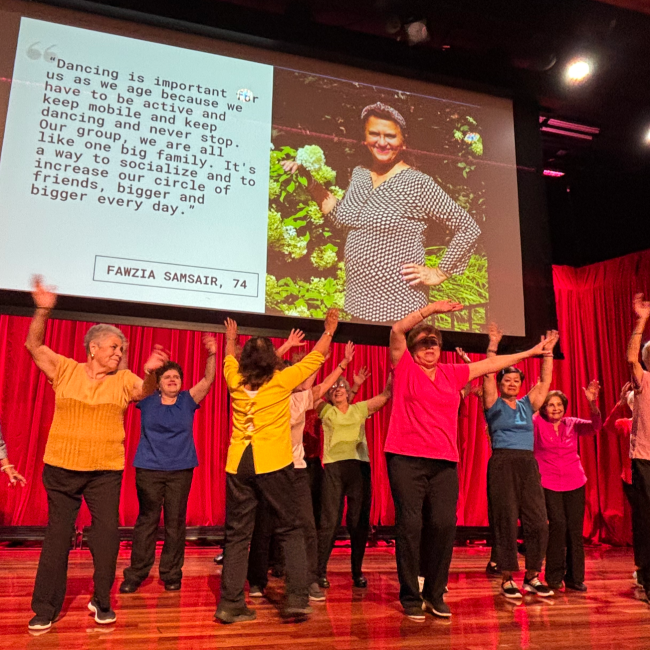Valuing embodiment: insights from dance practice among people living with dementia
Front Neurol. 2023 Jun 5;14:1174157. doi: 10.3389/fneur.2023.1174157. eCollection 2023.
ABSTRACT
There is a growing appreciation for the ability of person-centered arts-based approaches to extend multiple domains of brain health of people living with dementia. Dance is a multi-modal artistic engagement which has positive impacts on cognition, mobility and the emotional and social aspects of brain health. Although research into multiple domains of brain health among older adults and people living with dementia is promising, several gaps remain, specifically in understanding the benefits of co-creative and improvisational dance practices. Collaborative research between dancers, researchers, people living with dementia and care partners is needed to design and evaluate future research on dance and to determine relevance and usability. Furthermore, the respective praxes and experience of researchers, dance artists and people living with dementia contribute distinctly and uniquely to the identification and the assignment of value to dance in the context of the lives of people living with dementia. In this manuscript the author, a community-based dance artist, creative aging advocate and Atlantic Fellow for Equity in Brain Health, discusses current challenges and gaps in the understanding of the value of dance for and with people living with dementia and how transdisciplinary collaboration between neuroscientists, dance artists and people living with dementia can advance collective comprehension and implementation of dance practice.
PMID:37342779 | PMC:PMC10277497 | DOI:10.3389/fneur.2023.1174157



